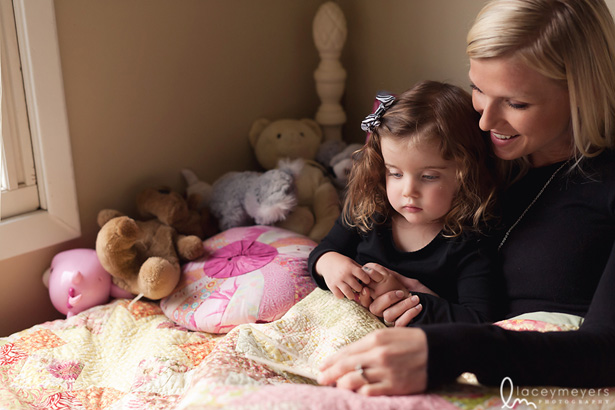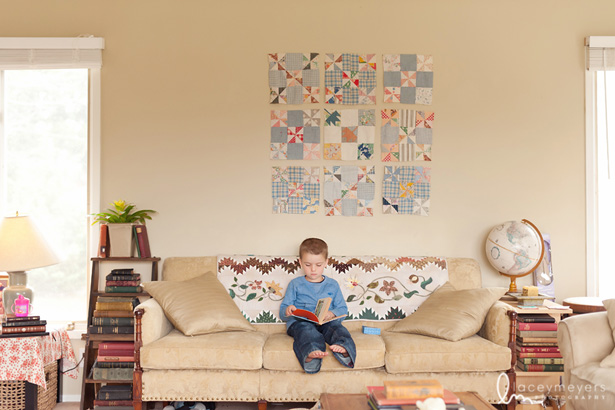Finishing theses thoughts from Wednesday. My only regret is that these words can’t be delivered with a big hug, a face-to-face smile, and a lot of laughter because I know the chaos of kiddos and how many days just getting a shower is a huge victory. Hang in there, and I pray you can be encouraged today by how SIMPLE it is to just give your kids YOU. A Spirit-filled Mommy is the best thing you can give them. I pray for joy and energy today as you raise your littles. Thanks for reading, and have a great weekend!
4:: Resist peer pressure.
- The most dangerous form of peer pressure isn’t that of other children on your child, but of other adults on you! That’s right, more often than not, it is pressure from other adults that make us do things we later regret and make choices that are not in the very best interest of our children. How many times have we made parenting decisions because of who was watching? Yup. We’re all guilty. Whether it’s a mother-in-law, best friend, or neighbor, we’re all prone to buckle under pressure, and some of us do it so often we don’t even know that biggest motivation and influence in our parenting decisions is simply the opinions of others! We must stop. We must believe, once and for all, that God gave us the responsibility of raising these children, and He will inform the decisions we make.
- We have to painstakingly evaluate our motives, constantly, to see if we’re looking out for the best interest of our child or the best interest of ourselves, to impress or please those around us. Michael Pearl writes, “There can be only one motive for training your children–their welfare as they grow to bring glory to God. If you accept pressure from friends, relatives, or society to perform in a certain way, then you are no longer raising children; you are coaching performers. The expectation of others is a blind motivator. It cares not for soul or child, but praise of parents. Don’t let anything, including [this book], put you under pressure to display your good parenting. If necessary, be content to be a failure. Care not for your reputation. True training is soul training.”
- God’s Word says the fear of man is a snare (Prov. 29:25). It trips us up and makes us do things we’d never do, foolish things, things that will hurt our children. Remember: If God smiles, it doesn’t matter who frowns. That said, be sure to seek humility and not an arrogant “I can train my kids however I want” sort of mentality. Love does not seek its own (1 Cor. 13:5). Love always seeks to bless others, honor others, and raise up children who will do the same.
- Finally, keep this in mind also in terms of how much time your child is spending with other children. Today we toss around the term “socialization” left and right, but it’s nowhere in scripture. The person your child needs to be with the most is you. Not other children. They will learn the most not by being around other children his or her age, but by being around siblings, adults, and a church family where many different ages are together. Of course same-age friends are great, but season your child’s life lightly with them. Don’t overdo it.
5:: Cultivate the environment of your home.
- One of the best things you can do is create a purposeful mission statement for your family. (Click here for help creating your own) This way, you can have a clear course for how you want to shape the environment of your home. If you want your children to love Jesus, fill your home with scripture, Bible stories, as well as wholesome virtuous books and materials that cultivate godly character. Toss out the movies, shows, videogames, or books that contain examples of brattiness, rudeness, teasing, violence (big one!), dishonesty, etc. YOU can control what your child thinks is “normal.” They will have their whole life to be bombarded by the garbage of the world; fill them up FIRST with the truth and beauty of God, which will provide their standard for what is good for the rest of their lives. It’s amazing how children learn quickly what is not appropriate (even if you don’t explicitly tell them) simply based on learning all about what is good.
- Play worship music or scripture-lullabies (www.scripture-lullabies.com). Turn off the TV. Don’t buy videogames. Electronic gadgets will never take the place of real-life talking and interacting. In fact, the less time your child spends in front of a screen the better. It’s so tempting to just stick them in front of a computer/TV/ipad/Leapfrog pad, but limit screen time. Let your child have enough time, quiet, and space, to get bored and then have to think creatively and use his imagination to think of things to do. This helps his brain develop and makes the smarter, calmer, and more creative. (More on this in Boys Should Be Boys by Meg Meeker)
- Do not let anything into your home (people or media) which does not honor God and contribute to the peace, joy, and purity of your home. Watch your words and your tone, how you speak to your children and your husband. REFUSE to use sarcasm in your home. While sarcasm (literally tearing the flesh) is harmful for everyone, it is especially toxic and damaging to small children. Establish a “No sarcasm” rule in your home. Teach your children to THINK before they speak: Is it True, Helpful, Inspiring, Necessary, and Kind? (Teach yourself too!)
- It’s so true: “If Mama ain’t happy, ain’t nobody happy.” Try this simple trick: Smile. Force yourself to smile. It’s hard to explain, but when we get in the habit of physically smiling more, we become happier. Our children behave better. Our husbands are happier. Give it a try. Write reminders around your home and make the effort to SMILE as much as possible. You might be amazed at the changes you see.
- Finally, be careful that you do not set such high standards for your children that you are constantly frustrated, grumpy, and therefore breaking fellowship with them. Michael Pearl writes, “If you can’t bring your children up to your higher standards, and, as a result, you find that you are critical and losing fellowship with the kids, then lower your standards to the point where you can relax and enjoy their company. It is better to have an undisciplined, selfish, self-centered brat who feels secure and loved than to have an undisciplined, selfish, self-centered brat who feels she is despised by everyone.” Looking back on my childhood, there are several things that come to mind that my parents probably could have been more strict on. It is a tragedy that I am 30 years old and still –in unguarded moments–put my elbows on the table during dinner. But the overwhelming feeling that characterizes my childhood is one of unconditional love and acceptance. For whatever reason I always felt like my parents were wildly proud of me and in love with me. I never doubted that they felt like they were the luckiest parents in the world to have my brother and I as children. That is priceless. That is worth a whole lot more than having perfect manners. If we have raised our standards to a point where our children in any way question our approval and undying affection for them as people, we must figure something else out. We either need to rise to the occasion and train them more consistently, or lower our standards to the point where they can succeed.
RESOURCES
Don’t Make Me Count To Three by Ginger Plowman
Babywise and Toddlerwise and Preschoolwise by Gary Ezzo
To Train Up A Child by Michael Pearl
No Greater Joy (volumes 1-4) by Michael & Debi Pearl
Boys Should Be Boys by Meg Meeker
Revolutionary Parenting by George Barna
Strong Fathers, Strong Daughters by Meg Meeker
Shepherding a Child’s Heart by Ted Tripp
Together at Home by Dean & Grace Merill (no longer in print)
Creative Correction by Lisa Welchel
Taking Care Of The Me In Mommy by Lisa Welchel
One Million Arrows by Julie Ferwerda
Missional Mom by Helen Lee
Plenty: 31 sips of joy for moms everywhere by Kari Patterson 🙂
*Special thanks to Karen Zyp, Elisa Smith, Kimmee Auxier, Heather Holland, and Joy Dombrow for lots of helpful advice along this journey.



